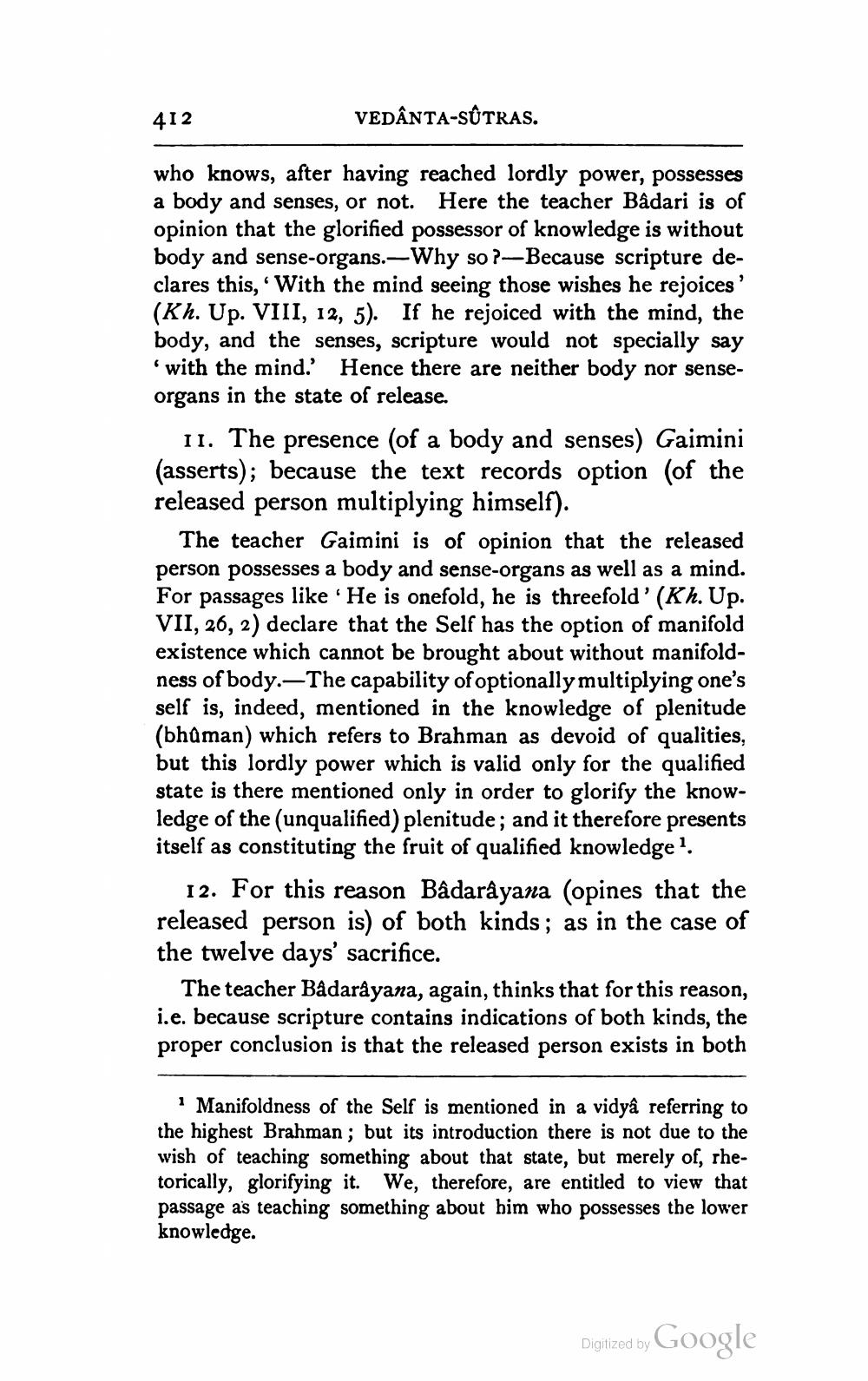________________
412
VEDÂNTA-SÛTRAS.
who knows, after having reached lordly power, possesses a body and senses, or not. Here the teacher Bâdari is of opinion that the glorified possessor of knowledge is without body and sense-organs.—Why so -Because scripture declares this,' With the mind seeing those wishes he rejoices' (Kh. Up. VIII, 12, 5). If he rejoiced with the mind, the body, and the senses, scripture would not specially say ' with the mind.' Hence there are neither body nor senseorgans in the state of release.
II. The presence (of a body and senses) Gaimini (asserts); because the text records option (of the released person multiplying himself).
The teacher Gaimini is of opinion that the released person possesses a body and sense-organs as well as a mind. For passages like 'He is onefold, he is threefold' (Kh. Up. VII, 26, 2) declare that the Self has the option of manifold existence which cannot be brought about without manifoldness of body.—The capability of optionally multiplying one's self is, indeed, mentioned in the knowledge of plenitude (bhūman) which refers to Brahman as devoid of qualities, but this lordly power which is valid only for the qualified state is there mentioned only in order to glorify the knowledge of the (unqualified) plenitude; and it therefore presents itself as constituting the fruit of qualified knowledge !.
12. For this reason Bâdarayana (opines that the released person is) of both kinds; as in the case of the twelve days' sacrifice.
The teacher Bådarayana, again, thinks that for this reason, i.e. because scripture contains indications of both kinds, the proper conclusion is that the released person exists in both
* Manifoldness of the Self is mentioned in a vidyâ referring to the highest Brahman; but its introduction there is not due to the wish of teaching something about that state, but merely of, rhetorically, glorifying it. We, therefore, are entitled to view that passage as teaching something about him who possesses the lower knowledge.
Digitized by
Digized by Google




